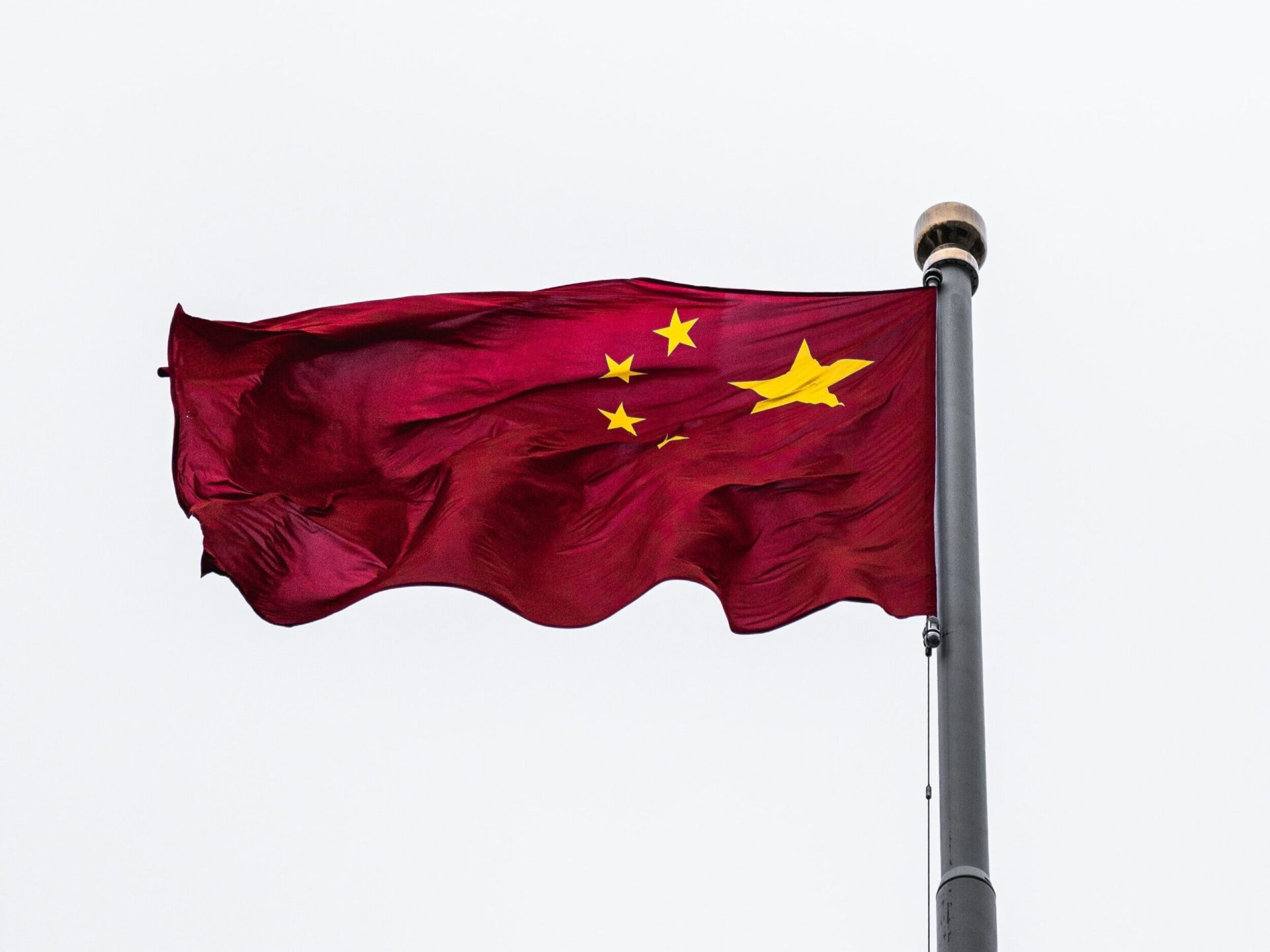
The courtship between China and the United States began when Richard Nixon and Henry Kissinger first set foot on the People’s Republic in 1972. The seven-day trip ended years of diplomatic isolation and set the table for decades of diplomacy between the United States, a world superpower, and China, the nation that Napoleon once called “the sleeping dragon” that would eventually shake the world.
And indeed, it did. In the decades since China has become a global superpower with lightning-quick speed. By the 21st century, the Middle Kingdom progressed from a capitalistic infant to an economic juggernaut, ultimately gaining the international recognition it craved by hosting the Beijing Summer Olympics in 2008. In a testament to China’s progress, American corporations like Coca-Cola, General Electric, Johnson & Johnson, McDonald’s, Nike, and Visa flocked to the nation with great fanfare. Our Western allies – and their multinational businesses – followed suit.
Today, China is no longer an economic player, but a major global threat – triggering a new era of competition. As the Secretary of State’s office outlined in a November 2020 memo, China does not want to operate within the current Westernized world order, but “to fundamentally revise world order, placing the People’s Republic of China (PRC) at the center and serving Beijing’s authoritarian goals and hegemonic ambitions.”
They are doing this in many ways. Namely, their ‘Belt and Road’ Initiative (BRI) continues to be the world’s largest infrastructure program and President Xi Jinping’s flagship foreign policy mission. The initiative provides power plants, railways, highways, and ports to telecommunications infrastructure, fiber-optic cables, and smart cities around the world; however, in the process, BRI makes weaker powers to be dependent on Beijing for trade, finance, and technology. According to a group of experts from the Council of Foreign Relations, it “poses a significant challenge to U.S. economic, political, climate change, security, and global health interests.”
Many experts and government officials are especially fearful of China’s “Digital Silk Road” initiative (DSR). Managed by Huawei, a Chinese telecommunications company with close ties to the Communist party, the project provides next-generation communication networks to paying nations. U.S. officials say that Huawei, at the behest of the Chinese government, can covertly access a nation’s networks to collect intelligence, monitor critics, and steal intellectual property. Some global powers are so fearful of this capability that as of December 12, 2019, Australia, New Zealand, Japan, Taiwan, and the U.S. have decided to ban and phase out the company’s products within their mobile networks.
So, given these challenges, what can President Biden and the State Department do to combat China’s growing influence? Well, despite its growing influence, China still craves international recognition – a proverbial seat at the table. Until President Xi and the Communist Party reform their economic practices, the United States and its allies can mount a campaign of continued scrutiny, essentially withholding international recognition.
In the near future, for example, the 2022 Winter Olympics is scheduled to open in Beijing on Feb. 4. With the 2008 Beijing Olympics in the rearview mirror, these upcoming games will be China’s version of a fancy adult dinner party. With meticulous attention to every detail, the Chinese Communist Party (CCP) will expect nothing less than perfection. That means full attendance by all the guests. To the Chinese, anything less than that will result in a loss of face on a globally embarrassing scale.
As such, the question for the United States isn’t whether we should boycott these games, but how the US and our allies can best use the threat of a boycott. Global legitimacy is a powerful and specific form of leverage that China yearns for. Leveraging it may be able to provide enough diplomatic pressure to grant us concessions in a number of ongoing issues.
For example, the global community might gain unrestricted access to the Uyghur community in the province of Xinjiang or a complete halt of all military exercises threatening Taiwan’s future sovereignty. On the economic front, a boycott could stave off Chinese market retaliation against companies or individuals who use their freedom of speech rights while outside their borders. Domestically, we could bolster Hollywood’s ability to create global content without market repercussions, and grant our athletes and journalists full freedom of speech rights. Perhaps we could insist on the release of Michael Kovrig and Michael Spavor, two Canadians who were unjustly imprisoned by the CCP in December of 2018.
Captain Corey Ray National War College’s sports strategy expert and a friend of mine, sees the theoretical value in such a threat; however, he questions the effectiveness of such a boycott. Ray is a captain in the U.S. Navy and an assistant professor at the National War College where he teaches courses in National Security Strategy Logic. He created a course that examines sports as a non-military instrument of national power to design strategies addressing contemporary security challenges.
Captain Ray tells me that history has proven boycotts while appearing righteous in the moment, have neither immediate nor strategic impact. However, he also adds that attendance to such events can also produce unplanned, positive outcomes. He notes that if the U.S. boycotted the 1936 Munich Games, Jesse Owens’ athletic prowess would not have exposed Adolf Hitler’s master race theory as a grave, international threat.
There is a historical precedent for effective boycotts. As a result of Apartheid, the International Olympic Committee banned South Africa from 1964 until 1992 when South Africa participated in the 1992 Barcelona summer games with a racially integrated team.”
But conversely, if the boycott threat fails to achieve a positive outcome, Ray said, then “the liberal international order should ask itself how to best influence the International Olympic Committee (IOC) to threaten China with a ban.”
Captain Ray stressed that influencing the IOC will prove difficult. China’s treatment of the Uyghur community preceded the IOC awarding them hosting responsibilities back in 2015. “Banning the host country would highlight a selection process the IOC would rather keep in the dark,” he noted.
He continues, “In the case of the upcoming Beijing Olympics, an IOC-imposed ban creates the necessary leverage to gain ground on small achievements. Even better, Fédération Internationale de Football Association (FIFA) could apply this same policy, threatening to ban China from World Cup competition, laying the groundwork for longer-term, larger progressive achievements that the CCP must commit to maintain its face-keeping, perfect mega-competition attendance goal.”
In essence, we both believe in the leverage of either threat. If the CCP balks, the specific follow-through is one for debate, but it must have teeth. It warrants a discussion that must be had now since this specific leverage held by America and our allies ends in ten months.
The amplification of human rights abuses and pernicious CCP global overreach cannot continue – enough is enough. The next 300 days provide an opportunity for the United States and our Western allies to pressure a true reset in China’s bad behavior.
We have the leverage, so what are we waiting for?
______________________________________________________________________________________________________________________

Chris Fenton
Chris Fenton, a long-time media executive and US-China expert, often lectures the “National Security & Sports” course at The National War College. He’s also a member of the Council on Foreign Relations and National Committee on US-China Relations and Trustee of the US-Asia Institute. His memoir, FEEDING THE DRAGON: Inside the Trillion Dollar Dilemma Facing Hollywood, the NBA, & American Business, is on sale now. Website: www.feedingthedragonbook.com. Twitter: @TheDragonFeeder.
______________________________________________________________________________________________________________________






